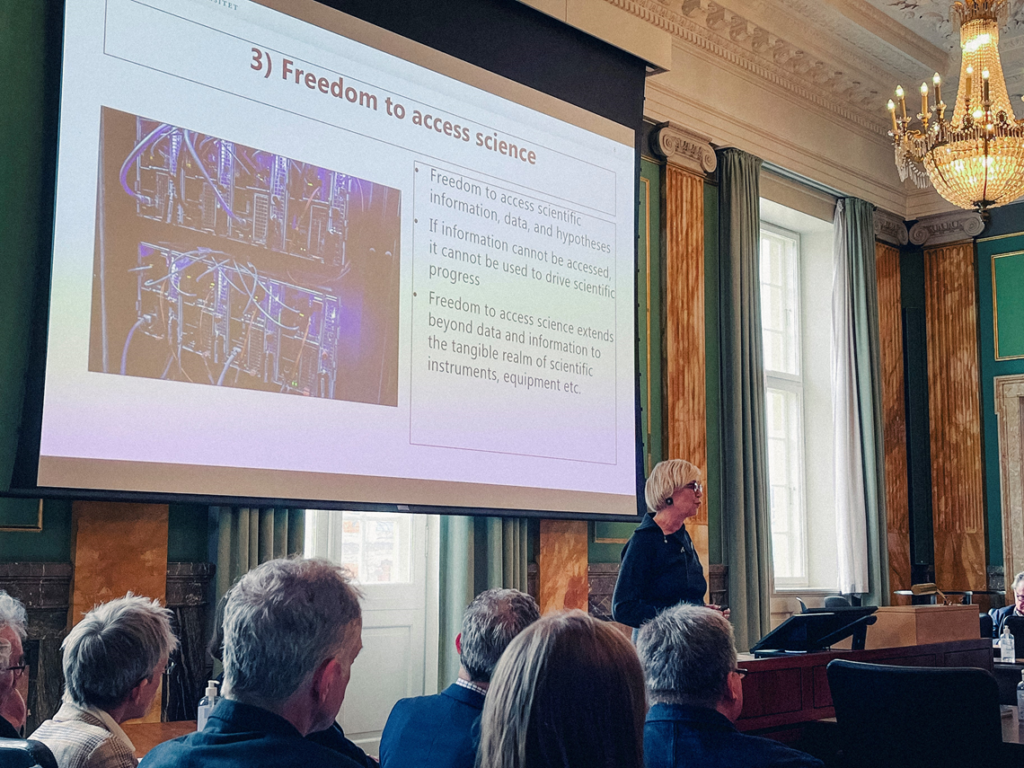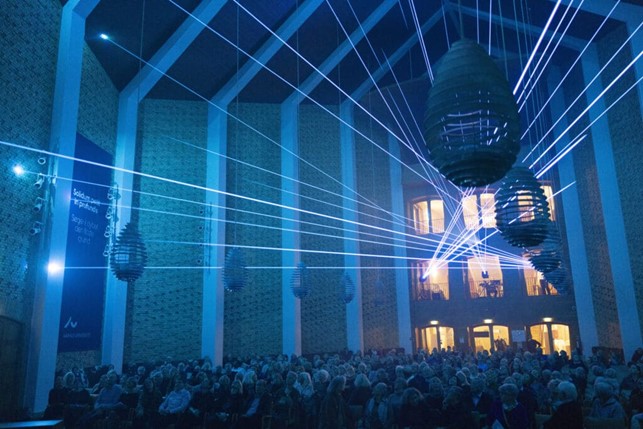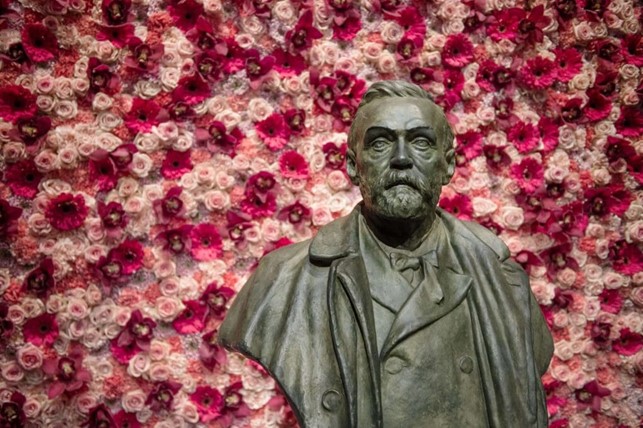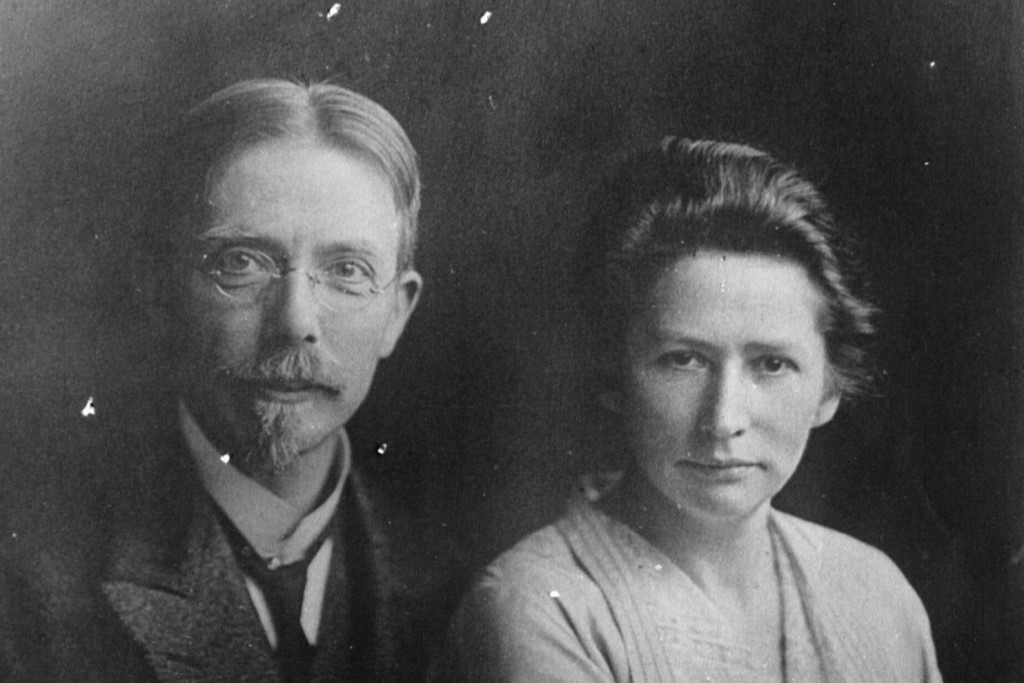Seminar on Academic Freedom
The Royal Academy spotlights academic freedom and threats to the pursuit of truth

The Royal Academy’s first seminar on academic freedom made it abundantly clear that there are innumerable issues to be addressed. The first in a series of seminars on the topic identified and explored threats against the ideal of the unfettered search for truth but also the problems associated with it.
Academic freedom, particularly when absent, is closely linked to democracy. Speaker Pavel Tereshkovich, who elaborated on what a society without academic freedom might look like, discussed the current situation at universities in Belarus. He is the chair of the exiled Belarusian government’s Council for Education and Research. Since 2020 Belarus has seen a dramatic change in how universities are controlled. University management, which is politically appointed, is quick to sack researchers for having ideologically “wrong” opinions. That is why the number of university professors has fallen by 7.9%, the equivalent of 1,550 people, in 2021–2022. Most of these former professors are now unable to support themselves as they are banned from all forms of employment – even cleaning jobs. A few have even been prosecuted and thrown in jail.
“This is the new image of university management,” explains Tereshkovich, who shows a picture of university presidents dressed in green camouflage military jackets standing in a row, each holding a small black pistol as they practice shooting.
Danmark does not immediately face such draconian measures but events outside our borders put pressure on Danish researchers, as Marie Louise Nosch, president of the Royal Academy emphasised in her opening speech. This was recently highlighted in an advertising campaign by the Danish Security and Intelligence Service (PET) warning Danish researchers about letting their research fall into the hands of foreign powers such as Iran or Russia. With slogans such as “Avoid becoming the Russian Intelligence Employee of the Year”, PET sought to use humour to engage researchers in a debate about the international exchange of ideas and national security interests.
“By its very nature, science is without borders,” emphasised Nosch when discussing the PET case. A basic tenant of academia is to discuss, collaborate and share research results with international colleagues. But now Danish researchers are being asked to weigh this principle against the security risks of the regimes under which their colleagues work. Are their international colleagues subject to a university president who has been on a military course? For this reason the academic freedom of our foreign colleagues is directly relevant to the working conditions of Danish researchers,” Nosch pointed out.
“Which problem do you want to pick?”
Academic freedom is threatened by more than just the totalitarian tendencies of other countries. Universities also struggle with internal challenges, such as how to deal with student activism, controversial speakers and hate speech. Social pressure can push researchers to censor themselves, which is a threat to academic freedom. David Kaye, a law professor from the University of California and a former United Nations Special Rapporteur on the protection of freedom of expression, touched on these issues.
These types of challenges are closer to the reality of Danish universities than the situation Belarus faces. As a result, during the subsequent panel discussion, various members of the audience asked Kaye and the other panellists if they could elaborate on what can be done to ensure academic freedom. As representatives of Danish institutions responsible for academic environments, some of the people asking questions were keenly interested in how to protect academic freedom. Academic freedom is a broad concept, which means addressing the question is complex – even for a panel of experts in the field.
This led Kaye to exclaim, “Which problem do you want to pick?” One aspect that was emphasised is that academic freedom must be ensured at many different levels along the academic value chain.
Society’s access to research
The relationship between universities and the general public is one aspect of academic freedom that has been under pressure in Denmark in recent years. Many researchers are worried about the consequences of working on controversial topics. As Nosch pointed out in her introduction, a recent study showed that researchers fear that speaking out about controversial research will lead to bullying or harassment. Presentations by Helle Porsdam, a professor of history and cultural rights at the University of Copenhagen, and Kristoffer Kropp, an associate professor at the Department of Social Sciences and Business at Roskilde University, focused on these issues, including the challenges involved in participating in research and having access to research.
Kropp explained that not all researchers have equal access to participating and asserting themselves as researchers – in neither the scientific nor public debate. For example, there is a systematic difference in how easy it is for researchers from Northwestern and Southeastern Europe to get their research results published in the most prestigious journals. As a result, society is missing out on expert input and researchers are prevented from making meaningful contributions to society with their research.
During a conversation after the event Kropp explained that academic freedom is not just about researchers saying leave us alone but that, “It is a crucial condition for us to engage with society and fulfil our social responsibility”.
Helle Porsdam’s presentation pointed out the implications of the general public having insufficient access to research and researchers. A lack of access prevents research from contributing to the development of society, for instance by enabling decision makers to base their choices on facts and allowing private individuals to act on an informed basis. As a concrete example, access to knowledge about hurricanes and earthquakes can be important for the safety of the general population. Being aware of the threat of these natural phenomena in advance allows society to take measures to counteract them and individuals can evacuate to a safe place in a timely manner.
If scientists were the sole proprietors of this knowledge and it was not disseminated to the public or only to a select few, then an imbalance would arise in the opportunities available to people in life. Consequently, structural barriers preventing researchers from having a voice in the research world, combined with many researchers feeling inhibited by the outside world’s reactions to their research on controversial topics, can be detrimental for society.
Even in Denmark there are challenges we can address to ensure academic freedom. Discovering a solution to complex national and international issues in a single afternoon is a tall order – even for a panel of experts at the Royal Academy. As a result, the discussion on academic freedom will continue at the Royal Academy’s autumn seminar, which is open to the public and will explore the individual challenges in more depth.


